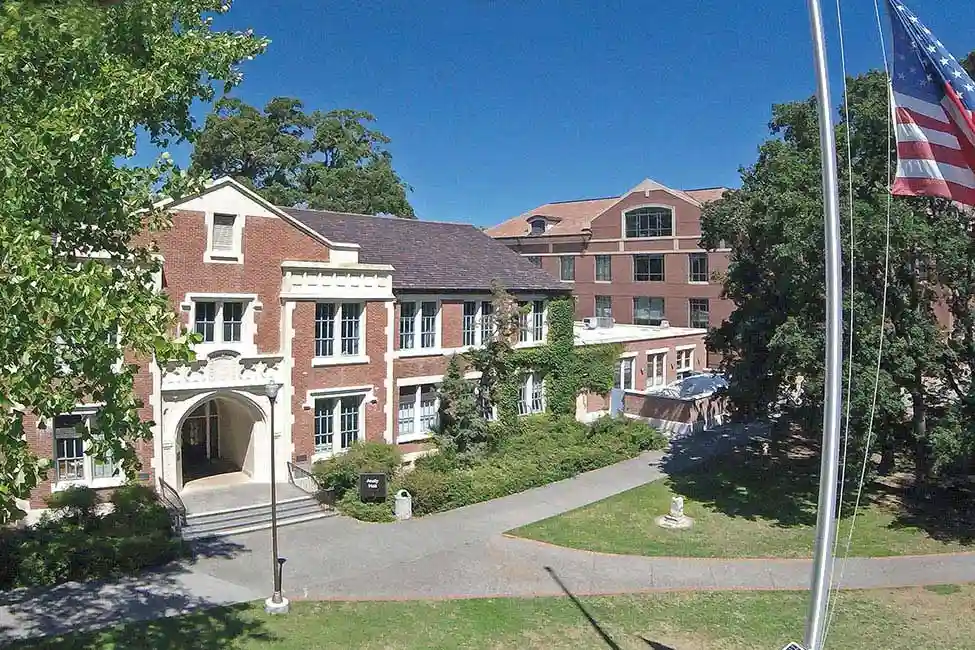Studying English in Canada

More than fifty countries use English as their official language. Learning one of the world's keystone languages isn’t an easy task, but becoming fluent certainly has its benefits. It’s relevant for any professional field and employment opportunities start to open up when someone is able to confidently greet an interviewer or a company representative at a job fair and say, “Nice to meet you.”
Universities, private language schools, centers, and other organizations offer English language classes throughout Canada. Private tutoring sessions are also an affordable option. Additionally, if a student can find a mentor who speaks English, their trip away or permanent relocation from their home country may be smoother. A good command of basic English skills is important for the journey to Canada. Seize every opportunity to practice spoken English, and if possible, written English too.
Many students choose to do an intensive English language program with the goal of pursuing studies in an undergraduate or graduate program. Schools provide a path to develop in several aspects of English, but it’s recommended to study before starting the program. Beginner-level learners may find the courses more difficult. This can be done without creating extra work. Participate in activities with other international students and Canadian faculty members or locals. Involvement can help speed up the growth process and lead to better communication and cultural understanding.
Find an English program that's the right fit
Consider the goals for the experience when debating how long to go. If the reason is to travel to somewhere new and exciting, a summer or winter term or short program could be appropriate. A semester or even a year might be the best approach. Make sure that your English program has a reputation for quality instructors and a strong curriculum. English language programs are as short as four weeks and some are as long as 13 weeks. A generous variety of ESL programs can be found in most Canadian cities.
Intensive English-learning programs are designed to develop language fluency and skills to succeed in a university classroom. Classes have a small amount of students, many of whom are from other countries. Programs are divided into skill levels to assist students with different needs. After taking an initial placement test, students are assigned coursework related to their skill level. Applicants who have previously obtained scores on accepted standardized language proficiency tests (e.g., IELTS, TOEFL, or CAEL) may not be required to take the placement test.
The cost of an intensive program generally includes an application fee and placement testing fees which tend to range from $50 to $100, on average, and tuition for a full-time program ranges from $3,000 to $6,000 per 7- to 14-week term. Textbooks may cost between $200 and $300 each term. Full-time students should also factor in the cost of medical insurance if the school requires them to carry it.
Community ESL courses are college programs which often have classes that meet for just four to five hours each week and are taught in the evening, with prices ranging from $300 to $500 per class, and textbooks usually cost about $60-$100 each.
Some private companies offer regular ESL programs. Urban school boards offer low cost English instruction to immigrants, both during the day and in the evenings, covering basic English to English for business.
If you’re in school and English is not your first language, there are also special ESL programs for students after school. Community colleges and universities have ESL programs on campus, and non-resident students are frequently referred to these as part of their studies. If you’re a permanent resident or a protected person, you can take language classes at no cost, through the LINC government-approved program.
Take an online self-assessment language test before you arrive in Canada. This is an excellent way to measure a baseline level of language. The results of the test are not official.
Tips for Studying English for the First Time
Take deep breaths, think deeply. Rehearse common phrases and responses during conversations.
Study after class and ask questions. Listen to English-language music. Watch TV with translated terms. Read books, even if they are children's books. Make relationships to practice English. Go to the speech lab after school.
These activities will help to express thoughts well. Immersion with native people can lead to improved pronunciation and develop a cadence for casual or formal conversations. If it seems impossible to understand something, ask people, “Try to explain it to me like to a five-year-old," and this may clear up any confusion.
During the first three months after arriving in Canada, students may be faced with “culture shock" which causes homesickness and anxiety. This should not be a major problem for the overall mission, but it can be a potential roadblock and cause an emotional strain, and shouldn't be underestimated. How can students avoid the worst effects of culture shock?
Communicate with friends or go for a walk to reduce stress. Follow student blogs or video blog diaries where other international students talk about their experiences and how they're dealing with major cultural differences. The StudyUSA website and Facebook page contains many such student blogs and articles about getting used to new environments and adapting to different social, academic, and financial systems.
Use university resources like ESL administrative staff members who are available during office hours. Don’t hesitate to take advantage of these hours; the money spent on the program guarantees being able to use the resources. Other resources include tutoring centers, the library, on-campus employment events, volunteer work, extracurricular activities, and study groups.
Be patient. Feeling frustrated is part of the process, so practice and make mistakes, and learn from them. Clubs and organizations at college or university give plentiful opportunities to practice English language skills, while at the same time make friends with Canadian and international students.
Erik Moshe
Byline: Erik Moshe is a freelance writer based in Virginia.
Get matched to the best program for you
Let us know what you're looking for so we can find the best school for you.
Useful Articles




Check Out These Schools



Florida International University Global First Year
$20,000—$25,000 Year

Edmonds College
Typical cost per Quarter: $1,000—$5,000

Santa Rosa Junior College
Typical cost per Year: $10,000 — $15,000

Glendale Community College
Typical cost per Year: $5,000—$10,000
Start your U.S. adventure with Study in the USA

Learn About U.S. education financing, housing, and more
Resources
Learn about American culture and education direct from our experts at Study in the USA. Read more







